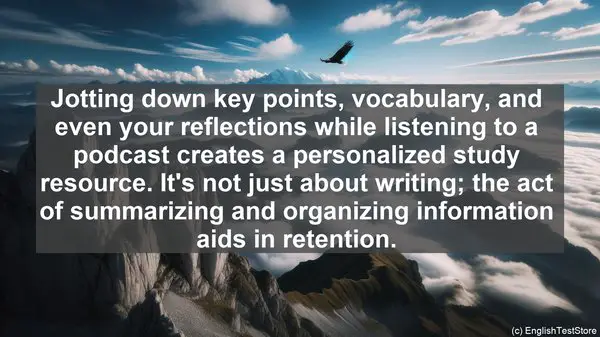Introduction: The Power of Podcasts in Language Learning
As a language teacher, I often get asked about effective methods to improve English speaking skills. One tool that I highly recommend is podcasts. Not only are they easily accessible, but they also provide a wealth of authentic content. In this video, I’ll be sharing the top 10 techniques for utilizing podcasts to enhance your English speaking abilities. Let’s dive in!
1. Active Listening: Engage Your Ears and Mind
Listening passively to podcasts won’t yield significant results. Instead, actively engage by taking notes, jotting down new vocabulary, and summarizing the episode. This not only improves your comprehension but also helps you internalize the language patterns and structures.
2. Mimicking: Mastering Pronunciation and Intonation
Podcasts offer a treasure trove of native speaker conversations. By mimicking their speech, you’ll not only refine your pronunciation but also grasp the nuances of intonation and rhythm. It’s like having a personal language coach!

3. Shadowing: Syncing Your Speech with the Experts
Shadowing involves listening to a podcast episode and simultaneously repeating what you hear. This technique trains your mouth muscles, improves fluency, and enhances your ability to think in English.

4. Transcribing: A Deep Dive into Language Structures
Transcribing a podcast episode, word by word, might seem daunting. However, it’s an incredibly effective way to understand sentence structures, grammar usage, and even idiomatic expressions. Plus, you’ll have a written record for future reference!
5. Discussion Groups: Learning from Peers
Joining or starting a podcast discussion group allows you to share your insights, ask questions, and learn from fellow language enthusiasts. It’s a supportive community that can provide valuable feedback and motivation.
6. Vocabulary Expansion: Context is Key
While listening, you’ll inevitably come across unfamiliar words. Instead of reaching for the dictionary immediately, try to decipher the meaning from the context. This way, you’ll not only expand your vocabulary but also improve your guesswork skills, which are crucial in real-life conversations.
7. Genre Exploration: Diversify Your Language Exposure
Podcasts cover a vast range of topics, from news and interviews to storytelling and comedy. By exploring different genres, you’ll not only enrich your vocabulary but also get accustomed to various speaking styles and registers.
8. Regularity: Consistency is Key
Like any skill, language learning requires regular practice. Set aside dedicated time for podcast listening and incorporate it into your daily routine. Even short sessions, if done consistently, can yield remarkable results.
9. Note-Taking: Your Personalized Study Guide
Jotting down key points, vocabulary, and even your reflections while listening to a podcast creates a personalized study resource. It’s not just about writing; the act of summarizing and organizing information aids in retention.
10. Repeated Listening: Unveiling the Layers
A podcast episode is like a treasure chest. Each time you listen, you’ll discover something new – a word you missed, a grammar structure you didn’t grasp initially. Repeated listening allows for deeper understanding and reinforces your learning.
